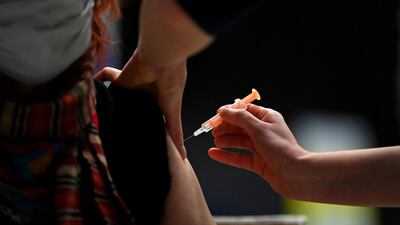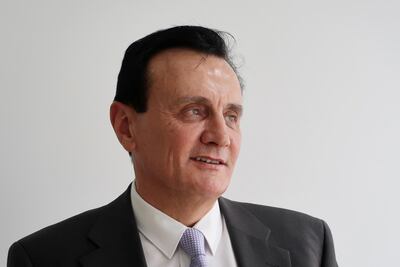AstraZeneca refuted EU claims that the pharmaceutical company is selling vaccine doses to the highest bidder, arguing that the bloc’s leaders are becoming “aggravated or emotional" as a result of mistakes in its inoculation campaign.
The company’s chief executive Pascal Soriot sought to calm the situation after European Commission President Ursula von der Leyen said that the EU “means business” in obtaining its fair share of vaccines.
The friction between the EU and AstraZeneca was highlighted by disagreements over whether a call between the two - the third for this week- would even take place.
AstraZeneca said last week that it would reduce vaccine deliveries to the continent because of production problems in its European supply chain.
The bloc plans to introduce new export controls, including a new “transparency mechanism” whereby pharmaceutical firms are required to notify authorities of shipments of vaccines outside the continent.
Germany pressed the EU to go further by limiting the volume of vaccine exports to ensure Europe receives its fair share.
Mr Soriot said that his company's global vaccine capacity is about 100 million doses a month and insisted that Europe would get a significant share of its output next month.
"Of course, we are ramping up production and Europe is getting 17 per cent of this global production in February for a population that is 5 per cent of the world population … we are in the ramp-up phase and basically it will improve, but it takes time," he told Italian newspaper La Repubblica.
Addressing concerns that the UK is being prioritised, Mr Soriot said the British government struck an agreement with his company three months before the EU did.
He said the bloc did not have enough time to iron out production glitches with external partners.
"We are basically two months behind where we wanted to be," he said. "And the issue here is we've had also teething issues like this in the UK supply chain. As for Europe, we are three months behind in fixing those glitches."
Mr Soriot said AstraZeneca had to reduce deliveries to the EU because plants in Europe had lower than expected yields from the biological process used to produce the vaccine. This has also happened in other regions as AstraZeneca sought to rapidly expand production capacity to meet demands from countries battling the pandemic.
He said that the UK was on track to vaccinate 15 million people by mid-Febuary.
Mr Soriot said that once the AstraZeneca/Oxford University vaccine gets EU regulatory approval – expected within days – it will ship at least three million doses immediately, with a target of 17 million by the end of February.
That would help the EU to speed up the rate of its vaccination programme that is currently way behind the US and UK in terms of the proportion of population inoculated.
Mr Soriot said that he understands the situation is difficult for leaders in Europe, where Brussels has co-ordinated the vaccine-buying scheme.
“Governments are under pressure,” he said. “Everybody is getting … aggravated or emotional about those things. But I understand because the commission is managing the process for the whole of Europe.”
An official from the European Commission said the bloc has agreed to give $407 million to AstraZeneca to develop its vaccine and deliver doses. The official, who wasn’t authorized to speak publicly, said the commission would be entitled to recover part of the money if the company fails to live up to the terms of this advance purchase agreement.
If the company’s UK plants are working more efficiently than those on the continent, the EU expects to receive doses made in Britain as provided in the contract, the official said. The EU suggested that AstraZeneca should release the details of the contract publicly.
Stella Kyriakides, the European Commissioner for health and food safety, said: “We reject the logic of first come, first served.
“That may work at the neighborhood butchers, but not in contracts and not in our advance purchase agreements. There’s no priority clause in the advanced purchase agreement.”


